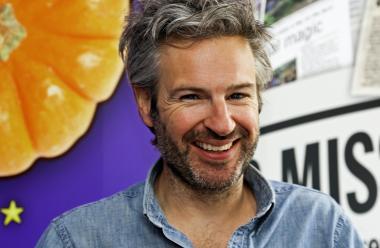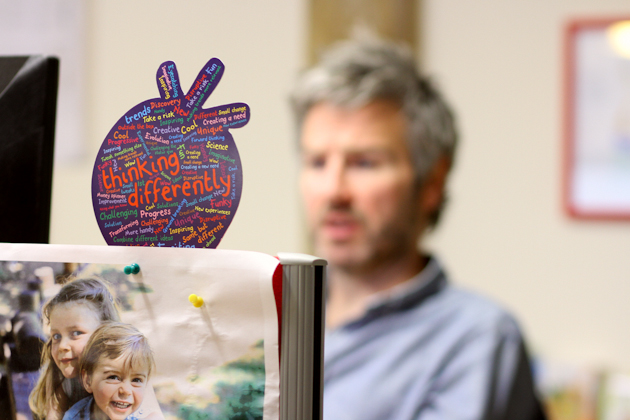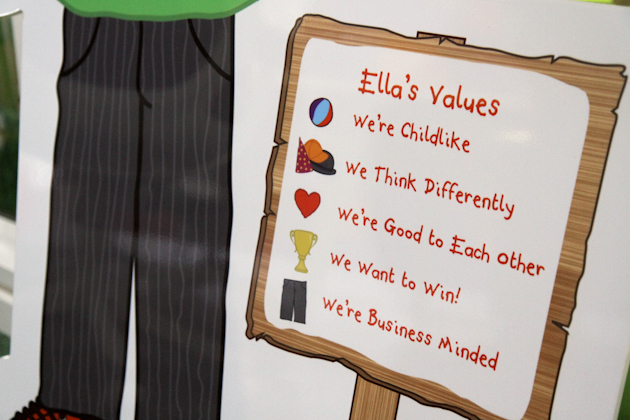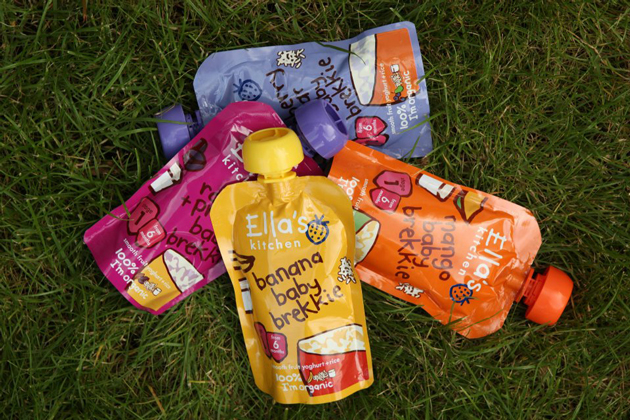Ella's Kitchen CEO: 'Every product is developed through the eyes of our mission'

What enabled Ella's Kitchen to challenge the baby food category so successfully when you first launched?
When Ella’s Kitchen launched in 2006, you had these big multinational PLCs like Heinz and Danone who had been in the category for 50 years. The branding was all very boring and functional, and the products were beige in colour and sold in jars.
What founder Paul Lindley did was realize that when you have children, you’re tired and at your most emotional, and he created a very emotional brand. He brought the product into pouches for the first time, making them tactile and he introduced colour. It engaged parents but it engaged children in particular.
Challenger brands have to have that point of difference, and with Ella’s Kitchen it was that introduction of a kids-first-philosophy and building a more emotional connection, which no one else was doing. That was the hook. It was very different to everything else in the category.
Explain the ‘kids-first’ philosophy? What does that mean for the brand?
When our founder Paul first had the idea for Ella's Kitchen he was in his kitchen trying out different recipes and testing them with his son Paddy, who was four at the time. Paddy was trying the recipes and said he liked the red one best because red is his favourite colour because fire engines are his favourite thing.
We as grownups would have never called the range the red one, the yellow one, the white one etc but that’s what children call it. My children who are seven and five still do the same - they still have baby food because it's free! So you can see from the very first products that we produced it had that kids-first mentality.
We’re obsessed with looking at the world through children’s eyes because firstly, you can learn so much from them, but also they're our consumers. Kids-first is an approach that's reflected around the barns [offices] here and you can see it in our job titles. It's an approach that defines us and differentiates us from all our competitors.
What is the monster for Ella’s Kitchen?
The monster for Ella’s Kitchen is childhood obesity and malnutrition. We have a serious problem in the UK, with 24% of kids entering reception, that's aged 4 turning 5, medically obese or overweight. All government policies in the UK start at age five. It doesn’t take a rocket scientist to work out that by then it's too late.
It's a problem that affects their life expectancy, it can affect the friends they have, the jobs they have, the NHS in terms of costs, everything. I believe that one of government’s responsibilities is to look after the young. People should be free to make their own choices but the government have a responsibility to help guide people.
The government’s childhood obesity strategy simply wasn’t a strategy. Jamie Oliver said he was devastated with the plan and he's right. I’m devastated for the kids in our country, that nobody is doing anything from a governmental perspective. Why are we failing our children? Why is nobody doing anything about what is an epidemic?

What is the mission and how does that impact the business?
Ella’s Kitchen has always been very much a purpose-driven business. We have a very defined mission at our heart, which is to improve children’s lives through developing healthy relationships with food. There are some projects we do that may not actually pay back commercially, but we do it because it’s the right thing to do for children.
When we talk about our mission to our consumers however, they’re often not that interested. When we post something hard-hitting on social, we can see it doesn't get the same level of engagement as other posts. Maybe because when you've had kids, you don't want to be reminded of the terrible things that are going on in the world.
Do we try and sell more product through taking our mission to our consumers? No. Do we always look at every product through the eyes of our mission? Yes we do. We tried to create a healthy rusk for babies, and after two years we realised it just wasn't possible. Rusks just aren't that healthy. This was a multi million-pound opportunity, but we didn’t do it because we didn’t think it was the right thing to do.
Talk us through Ella’s five values and why they are important?
'We’re child-like' - we see the world through a child’s eyes. 'We’re business-minded' - we’re not going to apologize for being a business that makes profits. 'We want to win' - we wanted to be number one in baby food and we are. 'We think differently' - we’re always innovative and never sit still. 'We’re good to each other' - we all want to make Ella’s Kitchen as good a place as possible to work.
It’s important when you’re setting the company values that they can’t be misinterpreted. I’ve seen companies set their values, but people can't explain what they mean, or they are too complicated. That doesn’t work. You’ve got to be able to look at the values, understand immediately and not misinterpret their meaning.

Why did Ella's Kitchen become a certified B Corporation?
We certified as a B Corporation in January last year, becoming only the second company - after Ben & Jerry's to certify whilst being part of a PLC. There are 2,000 B Corporations worldwide, spanning 40 countries and it’s for people that believe that business can be a force for good. I see this as the future for businesses.
As CEO, I believe it pays back commercially too. Why wouldn’t you want to make your company a better place to work? Why wouldn’t you want staff to be more engaged with what you do? Paul Polman, the CEO of Unilever, says he would love Unilever in totality to become a B Corporation, so it's definitely gaining traction.
I believe business needs to step up and help solve some of the problems we have in the world. Whether environmental or societal, we can’t expect governments to solve all of our problems, we need to do it. It just makes sense for businesses to start using their own skills and their own workforce as a force for good in society.
What advice would you give to other CEOs leading challenger businesses?
As CEO of a business, if there's one learning I fundamentally believe in and would pass to others, it's the belief in autonomy and allowing people to get on and do their jobs. I see my role here as a bit like a conductor. I don't make all the decisions here.
I also think people, especially young people today, want to be proud of the company they work for, and I think that means working for companies that exist to do more than just make money.
By eatbigfish.
This article originally appeared here.
